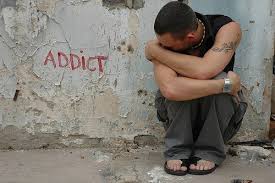 It is very reasonable for anyone to want to have their ideas, choices, achievements, or even their opinions validated by those around them. After all, what is the first thing we do as children when we accomplish something? We look to our parents for recognition (validation) that we did a good thing.
It is very reasonable for anyone to want to have their ideas, choices, achievements, or even their opinions validated by those around them. After all, what is the first thing we do as children when we accomplish something? We look to our parents for recognition (validation) that we did a good thing.
Validation is part of being interdependent and relying on the feedback and encouragement of others around us. Even very independent people still need validation in some aspects of their life; however, they are also able to accept their own self-validation if they do not get it from someone else.
The problem arises when self-validation is not possible or is not valued. In other words, if an individual puts the opinion, approval, or recognition of someone else over their own feelings, they need that external, other person validation on an ongoing basis.
Validation from Others
A significant aspect of the need for validation from others has evolved out of social media and the way people frame themselves and their identity based on how others respond to their post.
Most people have a friend who is constantly posting and continually checking in on likes, comments, retweets, and shares of their message. This is not just a few people, with over 3.2 billion people using social media on a daily basis around the world. This is research done by Emarsys, which reports that this number represents about 42% of the total global population.
In the US, almost 70% of the adult population use Facebook, with 90.4% of Millennials reporting themselves as active users. By clicking the thumbs up, posting a comment, or sharing a post, people are validating each other at an increasing rate.
This, as well as the need for in-person validation, can create anxiety, depression, low self-esteem, and make it addictive to hear praise, acceptance, and acknowledgment in all aspects of life.
Breaking The Cycle
An effective first step in breaking the need for validation from others starts with understanding the type of validation you are seeking. Do you want to be acknowledged through social media? Are you interested in hearing you are one of the group, the best at work, the ideal spouse or perhaps the greatest parent?
Knowing where you are seeking validation can be a challenge, and a life coach or a therapist can be helpful in working with you to discover this need. This then allows you to use a strategy that lets you disengage from the validation of others and learn to provide your own positive feedback.
Some good ways to start, include:
- Take a social media break – getting off social media is a great place to start. This eliminates the comparison to others or the anxiety and stress about how your picture, post, or comment is being seen and received by others.
- Be mindful – look carefully at what you are doing. Look for improvements and make a record of these either as a mental note or in a journal. These are self-validations that help you to build up your acknowledgment of your own abilities, talents, and skills.
- Do not ask for validation – instead of asking for validation from others, ask yourself first. If you do receive validation (encouragement or acknowledgment) recognize the praise and acknowledge it, then stop. Do not continue to ask others or seek out others for validation.
Keep in mind, validation is not a bad thing in your life, and it is affirming and positive. It only becomes problematic when it becomes the focus of all you do.
If you think you might be codependent, get Sherry’s FREE Ebook, The Truth about Codependency” https://wakeuprecovery.com/codependency-quiz/ Sherry maintains a private practice in Westlake Village, and is a sought after transformationn and recovery coach. For more information visit www.sherrygaba.com or sign up today for Sherry’s online group coaching program for $19/month https://wakeuprecovery.com/become-a-member-co/


